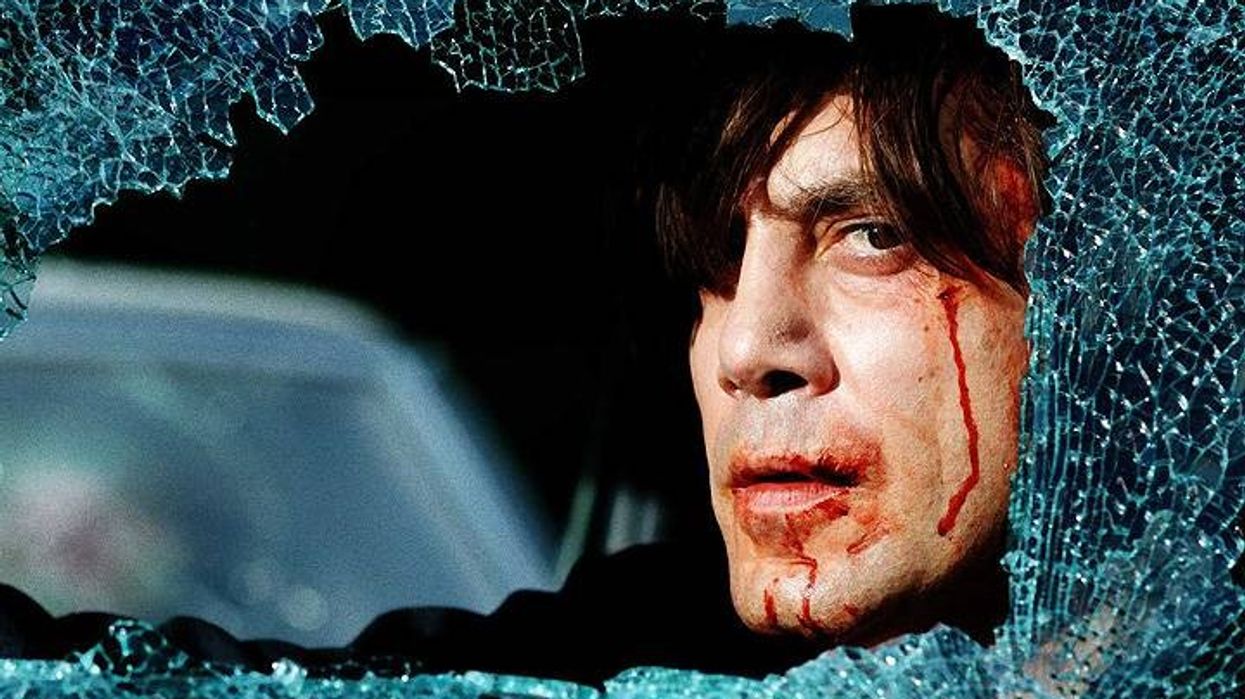The Sounds of 'No Country for Old Men' Are What Make It a Masterpiece
Doors slamming, shell casings hitting the floor, sneakers squeaking... it's the little things that stand out.

There's something about the eerie quiet in the way we meet Anton Chigurh. The door slams. Then we hear the tap of his boots on the pavement. It's like we are sitting on the edge of our seats, waiting for the explosion.
And it's not just that one scene. Every layer of No Country for Old Men is layered with a quiet and naturalistic sound that takes it from a gripping western to a masterpiece.
From the opening to closing frames, this movie is an exercise in not only what you see, but what you hear.
Check out this video from The Sound of Cinema, and let's talk after the jump... in hushed voices.
The Sounds of No Country for Old Men Are What Make It a Masterpiece
First and foremost, three cheers for the sound editor Skip Lievsay, and the main sound mixing team of Lievsay along with Craig Berkey, Greg Orloff, and Peter Kurland. This movie works so well because of the intense focus they put on mounting tension.
We often forget how big a role sound plays in telling the story. This is a movie with quiet intentions and methodical pacing. You could ruin it with too much of a score or the wrong kind of foley. What we see is perfect.
My favorite scene in the movie is when Chigurh comes to the Eagle Pass hotel.
If you look at the tension in this scene, it's built around sound. The creak of the floorboards, the beep of the tracking device. The door handle popping off. This is all about making you hold your breath. But it's also about the explosion after. The shotgun blasts that ring out in the night. The shattering glass. The stalking of a man around a car.
This is warfare, but on a scale of just man versus man.
There's a realism in this movie that is almost unmatched in neo-noir because they make everything sound like it's happening around you. You get a voyeuristic quality, like you're a part of the chase.
It's what sets this movie apart from the competition and what makes sound so important in our work.
Let me know what you think in the comments.
Source: The Sound of Cinema











